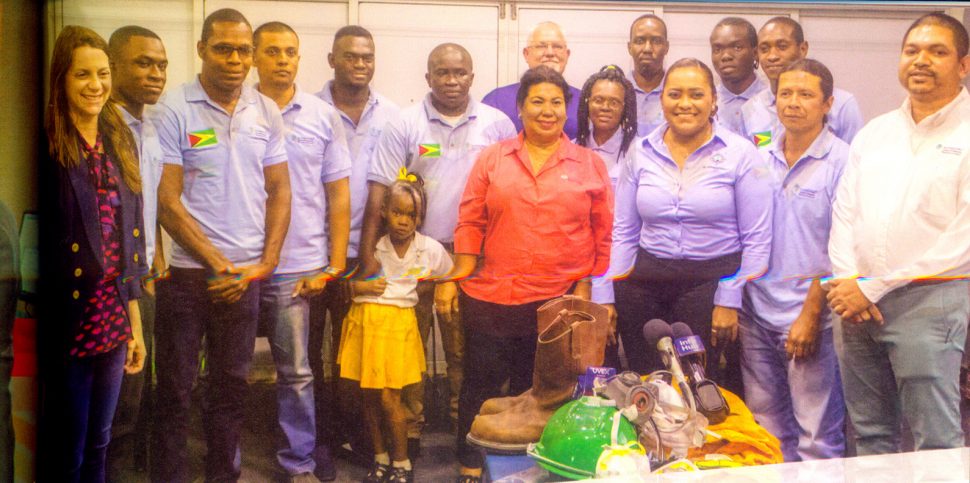Conscious of the concerns being raised in Guyana regarding the likely extent of the local content spinoff of its oil recovery operations offshore Guyana, ExxonMobil has been going to some lengths to make the point regarding what it says is its commitment to keeping Guyanese ‘in the loop’ as far as employment in the non-core aspects of its operations.
“Exxon Mobil recognizes that Guyanese suppliers and their workforce are vital to the success of our operations,” trumpets an article published in the 2018/19 of the state-run Guyana Office for Investment (GO-Invest) trumpets. The article alludes to the fact that, among other things, Guyanese companies involved in “fuel, ground crew and medical services benefit from the patronage of a United States-based contractor serving as ExxonMobil’s helicopter contractor”.
Beyond that the US oil giant points out that a Guyanese company supplies fresh fruit, vegetables, frozen local fish and chicken to the Stena Carron, the Drillship operating offshore Guyana. The vessels, ExxonMobil says, also utilizes Guyanese staffing companies to identify the Guyanese personnel filling roles such as Radio Room Administration Operators, Stewards and Painters among other occupations.
ExxonMobil also says that its support vessels, while sailing under international flags, have more recently transitioned to “training” vessels for Guyanese nationals including officers from the Civil Defence Commission and Cadets from MatPal Maritime Institute who “have gained experience in roles ranging from engineer officers to deck side officer…..”
ExxonMobil also makes reference to the recruitment by its subsea contractor, Technip FMC of 10 candidates from the University of Guyana to attend training in Brazil.
ExxonMobil further points out that its local office is comprised of 70% Guyanese “including two in senior management positions.” Guyanese personnel, it says, “work in the areas of Business Services, Controllers, Logistics, Public and Government Affairs, Safety, Security, Health and Environment.” Additionally, the company says that three Guyanese engineers had begun an international training programme.
Other local content-related initiatives cited by the company include the 2017 launch of the Centre for Local Business Development which is staffed by 80% Guyanese and which it says “facilitates communication between suppliers, contractors and sub-contractors and provides business improvement assistance to Guyanese.”
ExxonMobil says that itself and its prime contractors utilize more than 300 Guyanese companies for goods and services every quarter and that the number is growing.
The local private sector and more particularly the Georgetown Chamber of Commerce and Industry has been a persistent advocate of a local content policy underpinned by what one official described to this newspaper as “positive spinoffs for private sector ventures” in Guyana. Recently, British High Commissioner to Guyana Greg Quinn went on record as underlining the importance that Guyana possesses a local content policy that details how Guyanese will benefit.
With first oil approaching and the likelihood of a surfeit of potential investors arriving here there is increasing interest in the shape and content of the country’s anticipated local content legislation.
An existing draft local policy created by the Government of Guyana has attracted some measure of pushback from some quarters on the grounds that it is deficient in pronouncing on provisions the provide safeguards against the machinations of external entities that may seek to take advantage of the limited experience of Guyanese entities, luring them into essentially exploitative business relationships.





